
In 25 June 1807, a raft with a specially constructed single-storey structure on it was floated out into the middle of the Neman River near Tilsit in what is today Lithuania. It consisted of a roofed, lavishly furnished salon that was decorated with flowers and boasted two finely carved weathervanes, one in the shape of the French eagle and the other in the shape of the Russian bear. It was anchored in the middle of the river where it looked, to all intents and purposes, like a floating stage set. Fitting really, because it was here that Napoleon Bonaparte, whose carpenters had built it, was to meet with one of the great actors of the age – Emperor Alexander I of Russia.
By the time their two-hour summit was over, a peace treaty had been agreed that would bring an end to years of hostilities between Russia and France that had seen the Russian army crushed by the French and Europe transformed. Napoleon, one of the shrewdest political operators of his age, wrote of Alexander soon after this fabled encounter: “The emperor is intelligent, pleasant and well-educated. But he cannot be trusted. He is insincere, a subtle deceiver and a devious fellow.” In the event, Napoleon’s assessment was to prove correct. Within five years Alexander had broken the terms of the agreement and an even more costly war would break out between France and Russia – one that could only have one winner. Little did Alexander know that when he signed the treaty on that floating stage in 1807, he was setting himself up for a starring role in what would turn out to be one of history’s most epic dramas.
Denne historien er fra Issue 108-utgaven av History of War.
Start din 7-dagers gratis prøveperiode på Magzter GOLD for å få tilgang til tusenvis av utvalgte premiumhistorier og 9000+ magasiner og aviser.
Allerede abonnent ? Logg på
Denne historien er fra Issue 108-utgaven av History of War.
Start din 7-dagers gratis prøveperiode på Magzter GOLD for å få tilgang til tusenvis av utvalgte premiumhistorier og 9000+ magasiner og aviser.
Allerede abonnent? Logg på
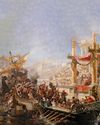
NAUMACHIA TRUTH BEHIND ROME'S GLADIATOR SEA BATTLES
In their quest for evermore novel and bloody entertainment, the Romans staged enormous naval fights on artificial lakes
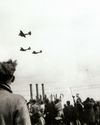
OPERATION MANNA
In late April 1945, millions of Dutch civilians were starving as Nazi retribution for the failed Operation Market Garden cut off supplies. eet as In response, Allied bombers launched a risky mission to air-drop food
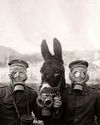
GASSING HITLER
Just a month before the end of WWI, the future Fuhrer was blinded by a British shell and invalided away from the frontline. Over a century later, has the artillery brigade that launched the fateful attack finally been identified?
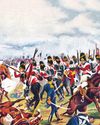
SALAMANCA
After years of largely defensive campaigning, Lieutenant General Arthur Wellesley went on the offensive against a French invasion of Andalusia

HUMBERT 'ROCKY'VERSACE
Early in the Vietnam War, a dedicated US Special Forces officer defied his merciless Viet Cong captors and inspired his fellow POWs to survive
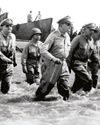
LEYTE 1944 SINKING THE RISING SUN
One of the more difficult island campaigns in WWII's Pacific Theatre saw a brutal months-long fight that exhausted Japan’s military strength

MAD DAWN
How technology transformed strategic thinking and military doctrine from the Cold War to the current day
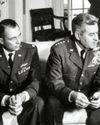
BRUSHES WITH ARMAGEDDON
Humanity came close to self-annihilation with the Cuban Missile Crisis, Broken Arrows’ and other nuclear near misses
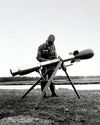
THE DEADLY RACE
How the road to peace led to an arms contest between the USA and USSR, with prototypes, proliferation and the world’s biggest bomb
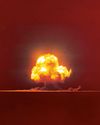
THE MANHATTAN PROJECT
Einstein, Oppenheimer and the race to beat Hitler to the bomb. How a science project in the desert helped win a war